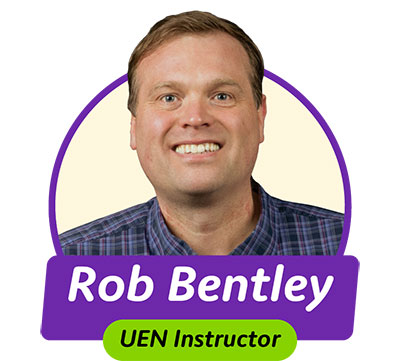UEN Teacher Tips
Research shows that active student participation, such as engaging in class discussions, enhances learning compared to passive listening to lectures. However, studies also suggest that teachers tend to favor a select group of students, often directing questions predominantly to those who readily respond, unintentionally neglecting other students in the process.
Here are three ideas to help ensure that all our students have the opportunity to answer questions:
-
Implement the Think-Pair-Share discussion technique. This simple and effective method accommodates diverse learning styles by allowing individual thinking time, followed by sharing thoughts with a partner and, if desired, with the entire class during the Share stage.
-
Utilize formative assessment tools like Nearpod, Quizizz, or Socrative. These digital tools enable real-time student responses, offering immediate feedback for teachers to gauge understanding and adjust lessons accordingly.
-
Try using the Popsicle Stick questioning technique by writing each student's name on a separate stick placed in a container. Instead of directly choosing a student for questions or discussions, randomly select a popsicle stick to avoid favoritism. Online tools like Wheel of Names.com mimic this method for digital use. These techniques help prevent favoritism or unintentional bias.
Check out this 3-minute video to learn more about these methods and activities.
Helpful Resource:
Rob is the product manager behind Adobe’s educational solutions. He specializes in empowering teachers to harness the full potential of multimedia for effective instruction, while also nurturing students’ ability to create captivating educational content like computer games, animations, web pages and much more. Previously Rob taught Spanish and language arts in Granite School District.

Share this tip:
You Might Also Like:
- Screen Time: It’s About Quality
- Five Tips for Embracing the Holidays in the Classroom
- Better Discussions, Better Engagement
- Using Nearpod's Draw-It Tool for Formative Assessment
- Revolutionize Elementary Math


 UTAH EDUCATION NETWORK
UTAH EDUCATION NETWORK

 Justin
Justin Braxton
Braxton Dani
Dani Kayla
Kayla Katie
Katie Lora
Lora Rob
Rob Val
Val

